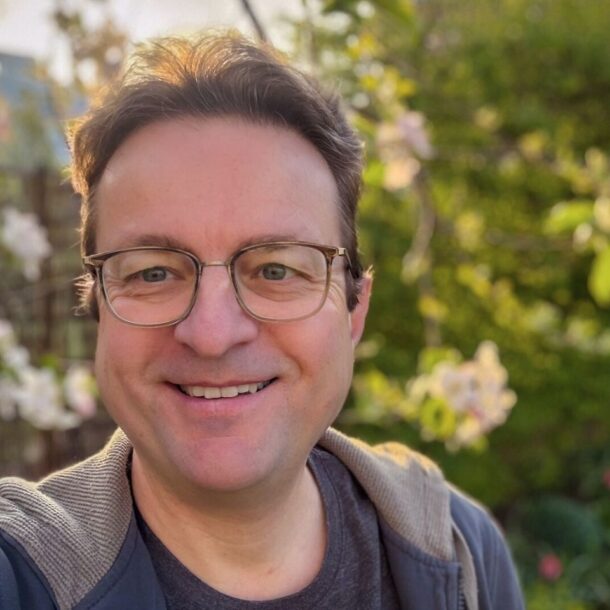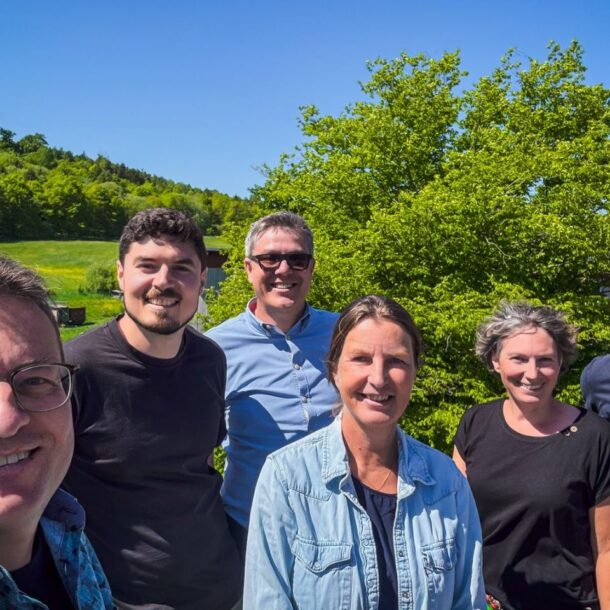
Together against loneliness: is this my new mission?
Loneliness affects us all – directly or indirectly. What is often dismissed as an individual destiny turns out, on closer inspection, to be a global challenge with serious consequences for our health, our society and our well-being.
In this article, you will find out why loneliness is one of the most underestimated problems of our time and what approaches there are to counter loneliness.
Moral Ambition: Choosing Problems That Matter
Moral Ambition is about working on a problem that is serious, underestimated and can be solved. The learning circle guide offers a series of global problems that have these characteristics.
An important question is: Do I have the talent and passion to make a meaningful contribution to solving this problem?
From Ikigai To My Mission: "CoCoCo"
In our last learning circle meeting, we discussed our ikigai – the intersection between our own strengths, passion, social needs and opportunities for rewards. Silke added that “ reward” doesn’t just have to be monetary, but can also come from inspiration and appreciation.
For me, this gave rise to my mission: “Creating places of connection and togetherness.” Terms such as co-mmunity, co-creation, co-aching and co-housing characterize this image – summarized in my wake-up call: CoCoCo.
But where is my impact the greatest? Perhaps precisely where community is lacking: in feeling lonely.
What Is Loneliness?
Loneliness occurs when desired social contacts deviate from actual social contacts. It is not simply being alone, but a painful lack of connection.
Loneliness: A Neglected Global Problem
Initial research – see sources at the end of the article – showed me that loneliness is a serious global issue. The WHO is working to put it on the agenda as a priority. According to a report by the U.S. Surgeon General Advisory, more people worldwide suffer from chronic loneliness than from diabetes.
For a long time, loneliness was considered an individual destiny or a taboo subject. However, it affects people of all ages and is increasingly being recognized as a structural problem. The UK established the world’s first Ministry for Loneliness in 2018, while Germany followed suit in 2022 with the Loneliness Competence Network and a national strategy.
Loneliness As a Serious Health Problem
One in four adults experience unwanted social isolation. According to the PM Report, loneliness has a serious impact on health and life expectancy – comparable to the consumption of 15 cigarettes a day (WHO).
Professor Anton Bucher explains that loneliness causes stress, reduces sleep quality and hinders healthy lifestyles. Interestingly, it is not older people who are particularly affected, but teenagers and young adults.
Solutions to Combat Loneliness
Interestingly, “lonely” in German originally meant “to be united”. It has only been associated with social deprivation since the 18th century. In his book “Loneliness – Pain and Blessing”, Anton Bucher describes that there is no single strategy for reducing loneliness (Bucher, page 96).
He distinguishes between the following types of intervention:
- Social inclusion: Building friendships, shared leisure activities
- Improving social skills: Training in social behavior
- Shifting mindsets: e.g. challenging beliefs like “nobody likes me” through mindfulness, meditation, learning journeys
- Therapeutic approaches: Important as loneliness is 50% genetically linked and associated with personal characteristics
- Technology-based interventions: Use of robots or AI
Insight
My initial research confirms this: Loneliness is serious, underestimated and solvable. All three criteria of Moral Ambition are fulfilled.
And of course – as Bucher also explains – there is also the blessing side of being alone, as I experienced during my workation in Valencia.
That is why I would like to continue this journey. In German, there are just three letters between loneliness (“Einsamkeit”) and togetherness (“Gemeinsamkeit”): GEM.
I want to embark on a journey and look for people who have already found “GEMs” in order to turn loneliness into togetherness again.
Who should I talk to next?
Feel free to share your ideas in the comments.
Sources
Bucher, Anton A. (2024): Einsamkeit – Qual und Segen. Psychologie eines Gegenwarts-Phänomens. Springer.
Kompetenznetz Einsamkeit (2025): Website https://kompetenznetz-einsamkeit.de/, last accessed on April 27, 2025.
PM Report (2024): WHO: Einsamkeit als globale Priorität.
https://pm-report.de/gesundheitswesen/2024/who-einsamkeit-als-globale-prioritaet.html, last accessed on April 27, 2025.
U.S. Surgeon General Advisory (2023): Our Epidemic of Loneliness and Isolation. https://www.hhs.gov/sites/default/files/surgeon-general-social-connection-advisory.pdf, last accessed on April 27, 2025.
WHO (2023): Commission on Social Connection, https://www.who.int/groups/commission-on-social-connection, last accessed on April 27, 2025.
My Newsletter: The Dancing Rainbow
I will send bi-monthly insights, reflections and invitations to special events around coaching, peer learning and community building.
It is time to live and learn in all its colors.
A little secret is waiting for you… if you take the first two steps, of course. Please sign up and confirm your registration – and get a first taste of what’s to come.
Let’s stay connected!
Address
Felix Harling

